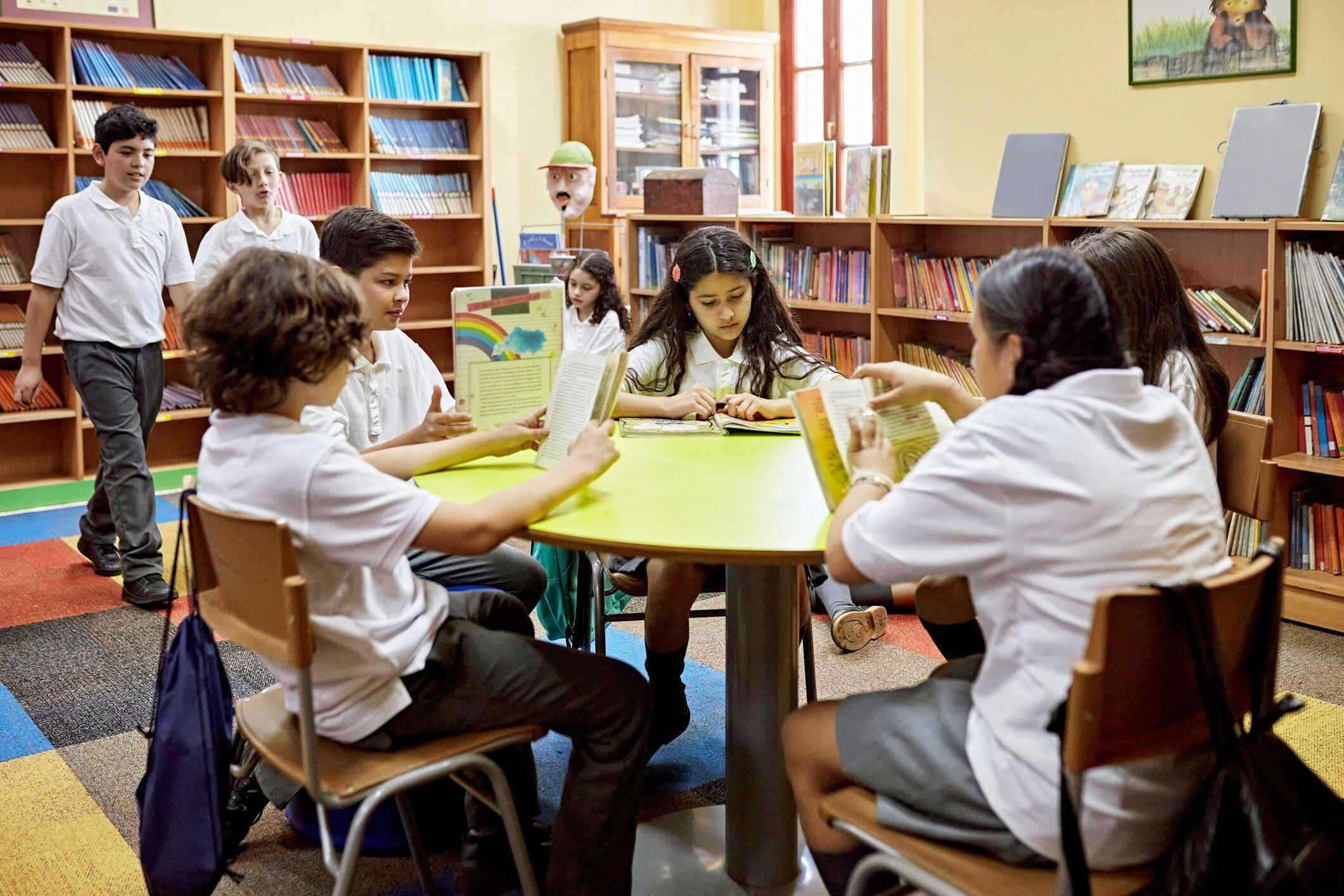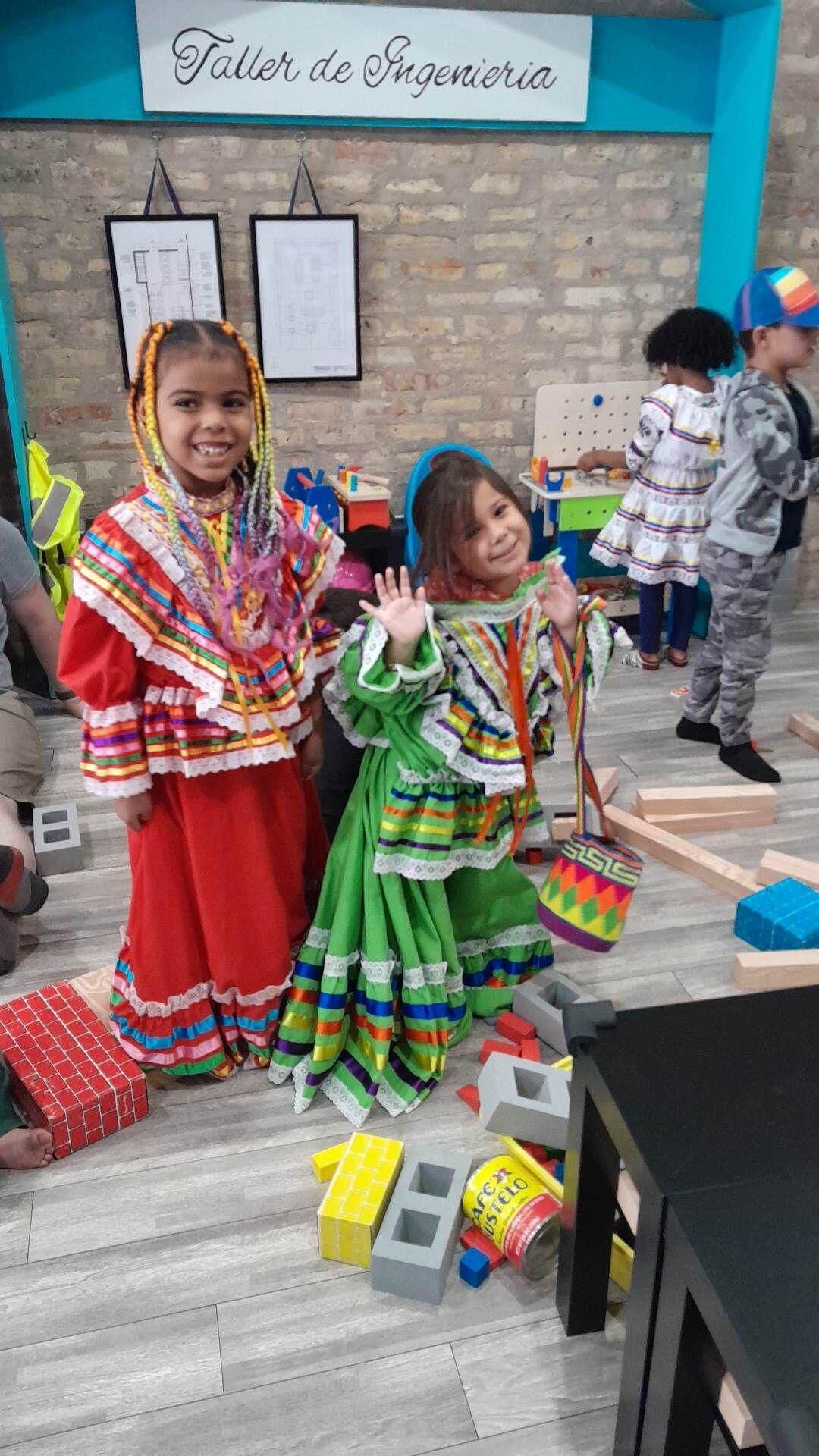The interview that a journalist tried to do with a child, in the midst of a jubilant celebration by fans of the Mexican national team in Los Angeles, in Californiawent viral last July.
-Honey, what’s your name?
-Mmm… my name?
-Why did Mexico win?
-Mmm… what?
“He is very emotional,” said the journalist to justify the child’s lack of response, while another commentator on the ESPN live broadcast highlighted: “It’s a generation that no longer speaks Spanish.”
LOOK: Defender of polygamy and enemy of wine and coffee: who was Joseph Smith, founder of the Mormon church
The video was shared thousands of times on social media, with many comments including a term you hear in the US in this type of situation: “I don’t know boy”.
The expression is used by some Latinos will refer disparagingly to other Latinos who don’t speak Spanish. Most of the time they are children or young people, children of migrants from Latin America who grew up with English as their mother tongue, which is why they are called “children”.
And this phenomenon is not sporadic.
A study by the Pew Research Center (PRC), an institution that analyzes demographic issues in the United States, indicated that the 40% of Latinos in the country have heard jokes or mockery from other Latinos for not speaking Spanish well.
“It was very impressive that the comments from many questioned why that child [del video] “He doesn’t speak Spanish, which is a shame because the parents don’t speak Spanish to that child,” Mark Hugo López, director of the PRC’s Race and Ethnicity department and co-author of the study, told BBC Mundo.
And although the USA is considered one of the countries with the most Spanish speakers in the world, command of the language varies greatly among its speakers.
In the PRC survey, a 75% of respondents said they could converse well or very well in Spanish. But of the remainder who did not speak Spanish, half admitted to having been shamed by others for not speaking the language well.
At the same time, 8 in 10 Latinos surveyed said it is not necessary to speak Spanish to be considered Latino.
“These results show the importance of Spanish, on the one hand, but also that a person can be Latino in the United States without speaking Spanish,” says López.
“Many say it’s a shame, because this person is losing their culture, their identity, by not speaking Spanish. But for others, it’s not important to speak Spanish in the US to be Latino,” he adds.
Growing up without speaking Spanish
Vanessa Ávalos, an American of Mexican origin who lives in Chicago, rejects the term “no sabo kid”, highlighting that this puts the negative charge on children rather than the adults around them who do not give them the knowledge of the language.
It’s something he experienced in a very personal way.
“My parents didn’t want my brother and I to speak Spanish,” he explains to BBC Mundo.
His family lived in the 1980s in the state of Texas, where there was a climate of discrimination against those who spoke Spanish. “My parents wanted us to not have bad moments of racism.”
Ávalos and his brother, who speak English as their native language, learned Spanish in elementary and middle school classes initiative and self-interest. “We fight for the language, to recover it. “We knew we wanted the language,” he says proudly.

Some time later, Ávalos realized that Spanish is important not only to learn more about his culture, but also because it is a factor that unites Latino families in the USA.
“My grandmother doesn’t speak English. Unfortunately, most of my cousins don’t speak Spanish. So when we were at her house, we all spoke English and she felt like, ‘Well, here I’m at home and no one talks to me because they don’t speak Spanish.‘” he says.
“I didn’t like seeing that. My children can talk to my father-in-law. “My daughter likes football and they watch the games together.”
This is a phenomenon rooted in US Latino culture. As PRC studies show, the majority of the country’s 40 million people who know Spanish they talk about it at home. Mainly in those homes where there are migrants who were born outside the country.
And 6 in 10 Latinos use Spanish: the mixture of Spanish and English.
Teach Spanish to Latinos
Ávalos says she didn’t want her children to take too long to learn Spanish like she did.
Her husband is also of Mexican origin, but does not speak Spanish. “I thought, ‘If we don’t speak Spanish to our children, They will lose that too. At that moment I saw what we could do with our children”, he explains.
Other people from Chicago’s Latino community also wanted their children to speak Spanish, so they got to work and this year opened a space that offers educational and fun classes covering the Spanish language for children.
Children aged 1 to 5 learn Spanish through songs, knowing the shapes of things and talking about basic situations like breakfast. Those aged 5 to 9 write, read and speak Spanish using a didactic method.
“It’s something fun for the kids. We are currently exploring Latin American music. Moms have told me that their children’s Spanish has improved and I’m happy to hear that”, explains Ávalos.
“The curriculum was developed by a Latina teacher who has a computer program, an application that children can practice when they return home,” he adds. The goal is that in three years the little ones will be bilingual.

Unlike in the past, Latinos in the US have changed their perspective on how valuable it is to speak Spanish as a complement to their lives and even as a work tool.
“People who were young in the 50s and 60s say their parents said it was more important to speak English and not Spanish because they were afraid of their children’s future in the job market and society in the US.” explains López, from the PRC.
“But not now. Now it’s different: A 2019 PRC survey indicated that most Latinos who have children they want their children to speak Spanish too”.
Furthermore, the success of Spanish-language music around the world has sparked great interest among Latinos in the language of their culture.
Preserve the language
However, the Spanish spoken by many Latinos in the US appears to be used more in everyday communication at home and in informal situations than in the professional sphere.
The majority he doesn’t have the level to say that in a job this requires a certain level of formality, according to PRC studies.
Another phenomenon that occurs in the USA is the loss of the language of parents or grandparents among new generations.
Spanish does not escape this trend: a 65% of third-generation or older Latinos cannot hold a conversation in Spanishthe PRC study shows.
“Schools in the US don’t offer many Spanish classes that are mandatory to obtain a diploma,” López points out.
“We have had three, four decades of dialogue about the importance of bilingual education, but there have not been many changes. “English is the language of schools,” he adds.
Given this, parents become a key factor so that your children know Spanish and make it their own.
“It was difficult for me to have my race make fun of me, because I didn’t know the language,” says Ávalos.
“Instead of censoring someone for not speaking Spanish, we should help them. If you’re going to make fun, no one will want to speak Spanish and we’ll lose control. It is the duty of parents to guide their children so that they know their culture.”
Source: Elcomercio
I am Jack Morton and I work in 24 News Recorder. I mostly cover world news and I have also authored 24 news recorder. I find this work highly interesting and it allows me to keep up with current events happening around the world.

:quality(75)/cloudfront-us-east-1.images.arcpublishing.com/elcomercio/PD4R4G6QQFBJFD4AAYVOVOHL7M.jpg)

:quality(75)/cloudfront-us-east-1.images.arcpublishing.com/elcomercio/SH7TJZEDJBHA5KJZGNVJC7IVXE.jpg)
:quality(75)/cloudfront-us-east-1.images.arcpublishing.com/elcomercio/DIWZTVLACFFLBBFI6UIVNLWKMA.jpg)
:quality(75)/cloudfront-us-east-1.images.arcpublishing.com/elcomercio/QB4EKPAJRNFB7JRBBRPJQNWNE4.jpg)
:quality(75)/cloudfront-us-east-1.images.arcpublishing.com/elcomercio/B3NQD5KCQNASBKCQBPS55KEHSI.jpg)
